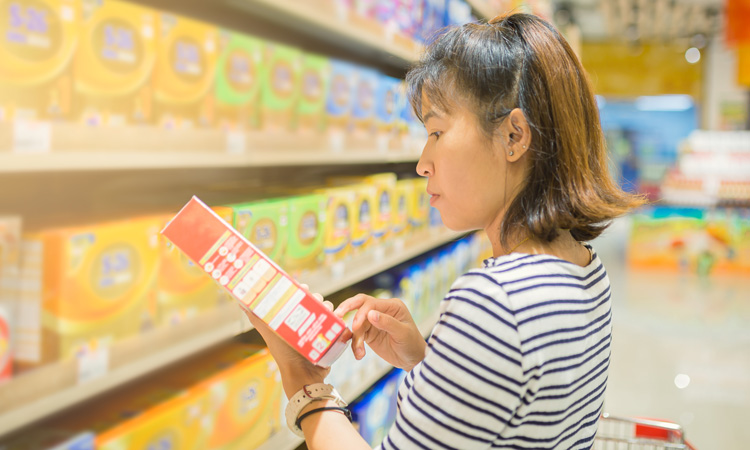Study finds collaboration is key to reduce food waste caused by labelling
- Like
- Digg
- Del
- Tumblr
- VKontakte
- Buffer
- Love This
- Odnoklassniki
- Meneame
- Blogger
- Amazon
- Yahoo Mail
- Gmail
- AOL
- Newsvine
- HackerNews
- Evernote
- MySpace
- Mail.ru
- Viadeo
- Line
- Comments
- Yummly
- SMS
- Viber
- Telegram
- Subscribe
- Skype
- Facebook Messenger
- Kakao
- LiveJournal
- Yammer
- Edgar
- Fintel
- Mix
- Instapaper
- Copy Link
Posted: 18 May 2020 | Sam Mehmet (New Food) | No comments yet
Researchers from the University of Maryland have set out to clarify the science behind food date labels, highlighting the need for interdisciplinary research and stakeholder collaboration to minimise food waste.


Minimising food waste is said to have been even further prioritised during the COVID-19 global pandemic, but the lack of regulation, standardisation, and general understanding of date labelling on food products (such as ‘best by’ and ‘use by’ dates) leads to billions of dollars per year in food waste in the US alone, according to researchers from the University of Maryland College of Agriculture & Natural Resources.
They explained that date labels on food products (with the exception of infant formula) are often entirely at the manufacturer’s discretion and are “not supported by robust scientific evidence”. In an attempt to address this, the researchers set out to clarify the science – or lack thereof – behind food date labels, highlighting the need for interdisciplinary research and global research trends in their recent publication.
“We have 50 different types of date labels that are currently used in the US because there is no regulation – best by, best if used by, use by – and we as consumers don’t know what these things mean,” said Debasmita Patra, assistant research professor in Environmental Science and Technology and lead author on the paper. “The labelling is the manufacturer’s best estimation based on taste or whatever else, and it is not scientifically proven. But our future intention is to scientifically prove what is the best way to label foods. As a consumer and as a mum, a best by date might raise food safety concerns, but date labelling and food safety are not connected to each other right now, which is a wide source of confusion. And when billions of dollars are just going to the trash because of this, it’s not a small thing.”
According to the US Food and Drug Administration (FDA), 90 percent of Americans say they are likely to prematurely discard food because they misinterpret date labels because of food safety concerns or uncertainty on how to properly store the product. The researchers explained that this confusion accounts for 20 percent of the total annual food waste in the US, representing more than 26 billion pounds per year and over $32 billion in food waste.
“Food waste is a significant threat to food security,” added Paul Leisnham, associate professor in Environmental Science and Technology and co-author. “Recognition of food waste due to confusion over date labelling is growing, but few studies have summarised the status of the research on this topic.”
“Our paper underlined the fact that future research on food waste and date labelling needs to take an interdisciplinary approach to better explore the perspectives of multiple stakeholders. Expertise from environmental science, food science, sociology, extension education, and other disciplines can more effectively develop interventions to reduce behaviours that may increase food waste. This is an environmental issue, but involves the knowledge, attitudes, perceptions, and social behaviours of multiple stakeholders, including retailers, food-service providers, and diverse consumers.” Leisnham continued.
“Utilising my expertise in experimental and mathematical modelling work, we aim to scientifically evaluate the quality characteristics, shelf life, and food spoilage risk of food products,” said Abani Pradhan, associate professor in Nutrition and Food Science and co-author on the paper. “This would help in determining if the food products are of good quality beyond the mentioned dates, rather than discarding them prematurely. We anticipate to reduce food waste through our ongoing and future research findings.”
Related topics
Environment, Food Waste, Packaging & Labelling, Research & development, Sustainability, The consumer
Related organisations
University of Maryland, US Food and Drug Administration (FDA)





